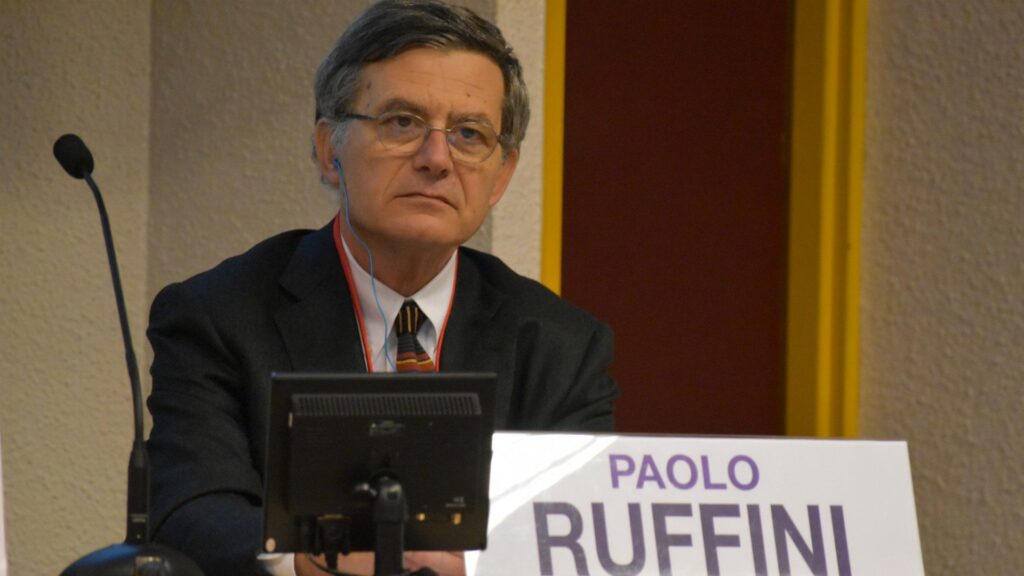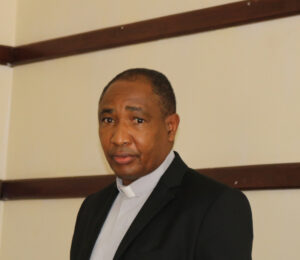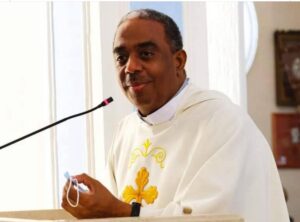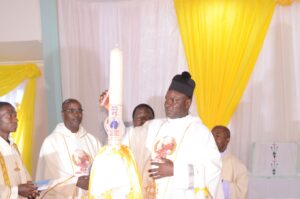AMECEA PLENARY: Communication Has a Task to Spread Ecological Ethics, Says Dr Ruffini to AMECEA

Dr Paolo Ruffini
Andrew Kaufa, smm
The Prefect for the Vatican’s Dicastery for Communications Dr Paolo Ruffini has on Tuesday, July 12, 2022, said that communication has a role to play in answering Pope Francis’ calls for care for environment.
Addressing the 20th AMECEA Plenary which is going on in Dar es Salaam, Tanzania, under the theme Ecological Impact and Integral Human Development, Dr Ruffini who join the eastern Africa bishops on this plenary, expressed gratitude that he is with the plenary delegations on this occasion and emphasized the role the Catholic media can play in the campaign.
“Many problems of today’s world stem from the tendency, at times unconscious, to make the method and aims of science and technology and epistemological paradigm which shapes the lives of individuals and the working of the of the society; that technology products are not neutral for they create a framework which ends up conditioning up lifestyles and shaping social possibilities along the lines dictated by the interest of certain powerful groups,” he said.
Talking specifically about the role of social communications in addressing the environmental crisis, Dr Ruffini said that there is need to “generate accountable citizens, true servants, true stewards on the planet and not only consumers” where communication can help the ecological ethics and so “contribute to the flourishing ecological citizenship.”
Referencing Laudato Si no 65, he emphasized the role of communication “in building or destroying a responsible awareness” about the crisis of our space and time, nourishing the country’s is to promote a responsible awareness; flourish.
The Prefect for Communication appreciated the flourishing of Catholic radio stations in the region since the first African Synod in 1994, so much that it now has over 70 Catholic radios and 7 Catholic television station stations.
“Radio is a very powerful media, that for most of the countries in Africa still plays a very important role,” he appreciated and added that “In some of your countries, almost every diocese has a Catholic radio station which also re-transmit our daily bulletins from the Vatican Radios.”
Dr Ruffini then reminded the bishops and delegates to the 20th AMECEA Plenary Assembly that communication is not a one-way process but reciprocal whereby listening to another another’s experiences and stories becomes part and parcel of authentic social communication.
However, the Prefect for Communication was also quick to note that unity is strength. Therefore, the Catholic radios in AMECEA region supporting one as a network is, according to him, a helpful attitude for the Catholic radios even when it comes to sensitizing the people about environment.
“This is why the link between the Dicastery and local churches is essential. And why is it essential tool to understand that every believer must let the message of Jesus Christ travel from person to person,” he continued adding, “Communication is not a structure: it is just a craft.”
In addition, Dr Ruffini insisted on the need for Catholic radios in AMECEA region being more interconnected; to think strategically; to be aware of their being servants.
“The communion we week comes from here. It is by this, only by this, that we can be recognized to be members of one another,” Dr Paolo Ruffini continued where referencing the Ubuntu Africa philosophy which teaches that “I am because we are” but also “Unity is strength.”


